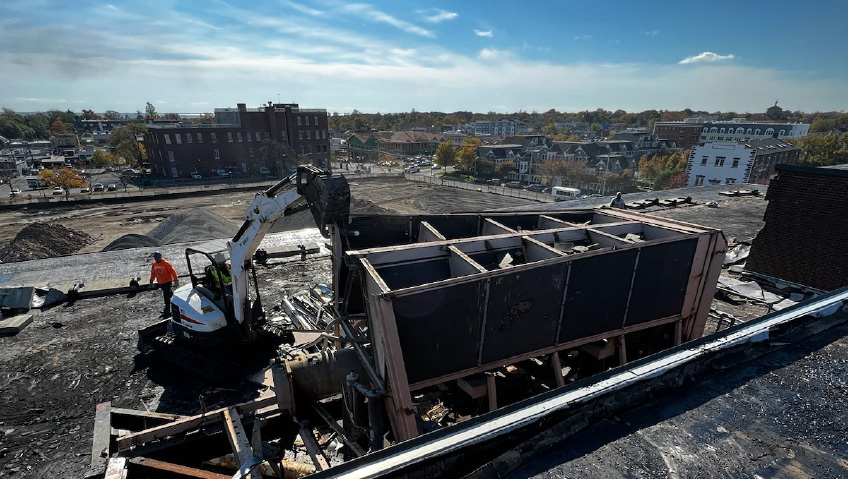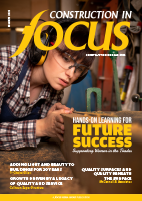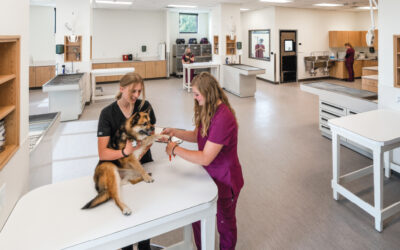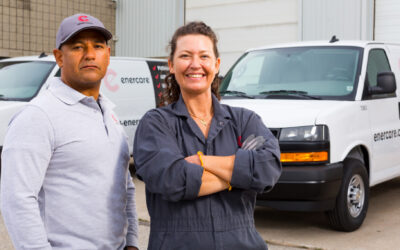It’s a story of dedication, commitment and perseverance in the face of some of life’s most challenging battles, and one that AMG Demolition Inc., has built its legacy on. Based in Melville, Long Island, NY, this woman-owned company (WBE/DBE), headed by Joan “Joni” Capobianco, entrepreneur and pioneer in the demolition industry, was built from the ground up into the multi-million dollar enterprise in the demolition industry it is today.
AMG has taken down dozens of buildings for the DEP along with performing hundreds of interior demolition jobs for hospitals, the School Construction Authority, The Port Authority, GOSR, CUNY, DDC, MTA and DCAS, and is currently working on numerous projects. These include the Manhattan Psychiatric Center, a 25-story facility which will see the full removal of the façade and a full gut of the building; Baruch College, a full structural gut; and most recently, a full gut of a 53-story skyscraper for JP Morgan Chase / Northstar.
The company has also collaborated on a number of projects with the Dormitory Authority of the State of New York (DASNY), including the Medgar Evers College Youth Collective Building, City College, Brooklyn College, Queensborough College, John Jay, Kingsborough College, and Bronx Community College. Through persistence, perseverance and plenty of hard work, owner and President Capobianco has helped the business grow into a thriving and well-respected operation.
AMG, however, arose from some truly tragic life changes when Capobianco’s husband passed away suddenly.
“I used to be in high-end, Italian children’s clothing, right around the time the Lira was turning into the Euro, and it was just a bad time, so I was getting out of that business,” she says.
She and her husband—along with their children aged 23, 11 and 13—had sold their house in New York and made the move to a new home in Florida.
“Before our moving truck even came, he died in his sleep. We never even met the neighbors. I was looking to get into a new dredging business and here I am in Florida for three days and basically have to turn the truck around and move back home and rent a house.”
A turning point in every sense, Capobianco was faced with some big—and unexpected—decisions. On the advice of a friend, she applied for MWBE (minority and/or women-owned business) status, and after shadowing a competitor, the rest is history—or her story.
“We got an engineer. We signed with the union, I got a couple of guys who put our first bid in, and we won our first government job, which was Medgar Evers College in Brooklyn,” she says. “And we completed our first job successfully.”
Utilizing a portal system that shares job reviews seen by the School Construction Authority, the MTA, and others, AMG’s triple A rating after its first job led to being invited to the OPG (Opportunity Programs Group), a very select group of MWBE. Performing “slowly but surely,” AMG received funding, and started with a bonding agent who made sure the company paid its job bill first.
“Now it’s 2023 and we have $25 million in bonding,” Capobianco says. “DASNY and the MWBE program really brought us to where we are today. There are a lot of good contractors out there, but because the goals were so high, we got an opportunity that we would have never ever had once we performed well and proved ourselves.”
AMG became the go-to union demo company, she says, and the onslaught of Hurricane Sandy created another yet path.
“Every time there’s a tragedy, they need an abundance of people to clean up the mess,” says Capobianco. “We did a lot of work during Sandy, and slowly but surely we started doing a little bit more; the machinery side of our business started to generate more than the hand labor demolition side, and we were taking down full structures—more than 400 following Sandy.”
AMG signed with Locals 14, 15 and 138 as well as Laborers Unions 66, 79 and 731 for the operating engineers and took down a couple of buildings, instigated through a minority participation program via the MWBE/DBE.
“It’s a very tough business. The stories are endless,” says Capobianco. “MWBE became a precedent. The men and the non-MWBE world were very against this, being forced to use a [particular] group of people. It was a little bit of an issue for a lot of the people who’ve been in this business forever. It got to where they wouldn’t be able to get a contract unless they gave a utilization plan showing their MWBE/DBE participation.”
With its strong record, bonding, and union affiliations, AMG continued to thrive, reinvesting any profits right back into the business for the first 10 years. Today it boasts 200 employees, a full-time engineer, three estimators, a project coordinator, three project managers in-house, and an in-house CFO. Despite all the years of success and high-profile demolitions, Capobianco doesn’t forget her roots.
“If it wasn’t for the MWBE/DBE program, nobody would have given us the opportunity,” she says. “It’s not a freebie; you have to perform well and work hard, and then you’ll get another chance for opportunity, and that’s exactly what happened with us. We started bidding MTA work and landed a chance at another bid opportunity (ESI) which was developing subways, ripping out platforms and mezzanines, corroded stairs and compromised terracotta walls.”
The onset of COVID led AMG in another new direction when the company was asked to help with anything from moving coffins to demolishing floors and walls, making hospital bed space out of offices, helping with security in the ER, and more.
“Northstar put us to work seven days a week, 100 workers, 24 hours a day. We had operating engineers who would have forklifts to put coffins into a freezer, and we had guys that were just stripping floors, making offices into hospital beds,” Capobianco shares. “We did everything and anything. Daily the bodies were coming in, and there weren’t enough people, everybody was getting sick. So we would help with moving bodies to funeral cars into hospitals and down to the morgue.”
While she says “so much” of how a business grows depends on the economy, the government and “who’s in charge,” Capobianco has also had to depend on herself throughout all of it.
“You’re a woman alone. My husband had liver disease, so we weren’t able to get life insurance,” she says. “Here I am with three kids, no money, we’d just gotten to Florida, with no job. My kids were suffering. Do I want to go find some menial, miniscule job that will just pay the bills and we move into an apartment, or do I want to try to give them a nice lifestyle and let them go to good colleges and have cars and finish up what I started with my husband. There was struggle, grief and suffering there.
For Capobianco, the sacrifice meant working 18- to 20-hour days and a nonexistent social life while her parents helped with her kids.”
“What do you do when you have nothing?” she says. “You have nothing to lose, so you give it 1,000 percent and you see where it goes. I didn’t date. Two weeks after my husband died, they said, ‘Mommy, are you going to get another daddy for us? And I said, ‘absolutely not.’ You know, a lot of women do that. They say, ‘how am I going to afford these kids?’ so they get married quickly afterwards for security. I said, ‘Mommy’s going to open up a business and you won’t see me as much, but I’ll make sure I give you everything you need.’ The little one said to me, ‘Mom, why don’t we make a deal? When I go to college, you could start dating.’ And I said, ‘okay, that’s a deal.’”
Capobianco was determined to make it work—to learn the business, push for meetings, enter rat-infested buildings, find jobs, and pay the bills.
“I never slept,” she says of those early days. “And almost 10 years to the day, my daughter said to me, ‘mom, I’m finishing my third year of college, and you were supposed to start dating two years ago.’”
Capobianco took her daughter’s reminder to heart, albeit in a roundabout way. After buying some Jet Skis—her first “big” purchase—she was fueling them up at a marina when a stranger loaned her a life jacket upon her promise to return it at the end of the day. Capobianco forgot, but a few chance encounters later—including the stranger unknowingly walking into her business office—led to another decision.
“I called my daughter and said, ‘I think I want to date.’ And that was it,” she says. “I met Phil, who has kids of his own, and I introduced my kids to him and we were married soon after. It was pretty amazing. It’s the perfect ending.”
Their kids are all “best friends,” and Phil, who has recently retired, has joined Joni at AMG and has helped in so many ways to relieve the stress.
She’s had a lot of help along the way, she adds, including CFO Jaime Martinetion and Senior Project Manager Joe Amatulli. Jaime has been with Joni since day one and can finish her sentences. “Without Jaime I am not sure we would be here,” she says. She’s also joined by her daughter Natalie, a project coordinator who has been everything from a bookkeeper to project coordinator over the past 15 years, and son Anthony, who has blossomed into an amazing estimator and project manager.
“Jason Loeb has joined the AMG team as project manager of sizeable jobs,” Capobianco says. “Dawn Callahan and Ahmed Nasr are AMG’s estimating team. Benny Versaci of LJC has joined our team. Juan Vicuna and Jeronimo Mejia are our trusted General Foreman. Our office assistants Dayna Liuzzo and Angela Giaramita support our management team and provide a warm and friendly environment. My daughter Vienna has grown into a wonderful young woman; she has become a therapist and is planning her wedding for next year. My son Gregory owns his own business and just had a son, Leo Davide. Natalie has two children, Joseph and Olivia. My two step-sons, Anthony and Mark, are both expecting children of their own this spring. The Capobianco family is growing leaps and bounds and myself and Phil love our role as grandparents. We cannot wait for the two new babies to arrive and enjoy the fruits of our labor,” she shares.
And while the company is continuing to thrive and grow with new and exciting projects, Capobianco never dismisses the challenges. “Early on, I will say it was horrifying,” she admits. “When I first started, people were forced to use MWBE/DBE firms because they needed to meet MWBE participation or the job’s not getting done. I was being abusively cursed in the field. I wanted to turn around and cry, but you couldn’t do that in front of a man. So it took a long time to prove myself and to prove I knew what I was doing.”
Never one to rest on her past successes or take advantage of her MWBE/DBE status, Capobianco has made a point of providing excellence.
“We really give a service like nobody else; our labor force is a family and amazing group of talented people who truly care,” she says. “We never say no. I’ll figure it out. If I’ve got to do it myself, I’ll do it myself.”
Success also means the ability to choose to do business with companies Joni respects; she has made many friends in the industry and has learned from seasoned general contractors. People like Larry Sitbon, the owner of Citnalta Construction, have been instrumental in guidance in all aspects of this business. He is Joni’s “go-to call”. “We surround ourselves with honorable companies that share our beliefs and work practices and ethics,” she says.
“After four or five years, we really made a name in this business,” she says. “We wound up getting that reputation and the respect and now it’s hasn’t been a problem for many years. But it’s very difficult, because everybody at the beginning, including owners of properties would ask, ‘what do you know about demolition? Do you want to go on a date?’ ‘No, I don’t want a date, I want to get this job.’”
Over the years, she’s also had to contend with businesses speaking only to her male coworkers, even when she, the company president, was in the room.
“I think it’s changed a lot with the changes in our world today, and I think the momentum has changed a little bit,” she adds. “Men in this industry respect women a little bit more. It was a long road, and I can truly say at this point it’s because I have good people, and I have my husband by my side. And that’s the key: having the right people around you with the right personalities. We have a great team. I never forget where I came from and know that safety is the most important element. One mistake and this all can be gone; there are no shortcuts. We stay clear of stereotypical undesirables. We stay the straight course, pay all our bills and treat our people well.”













